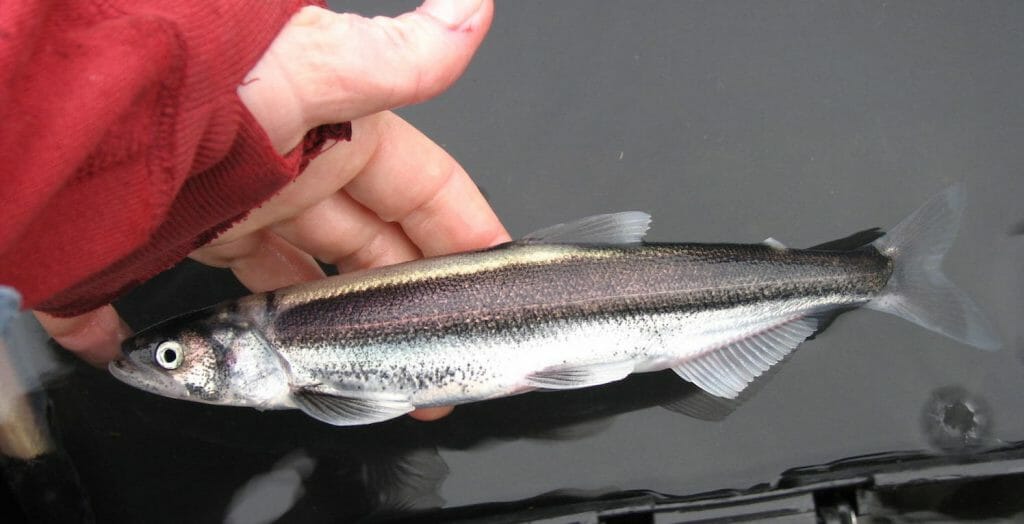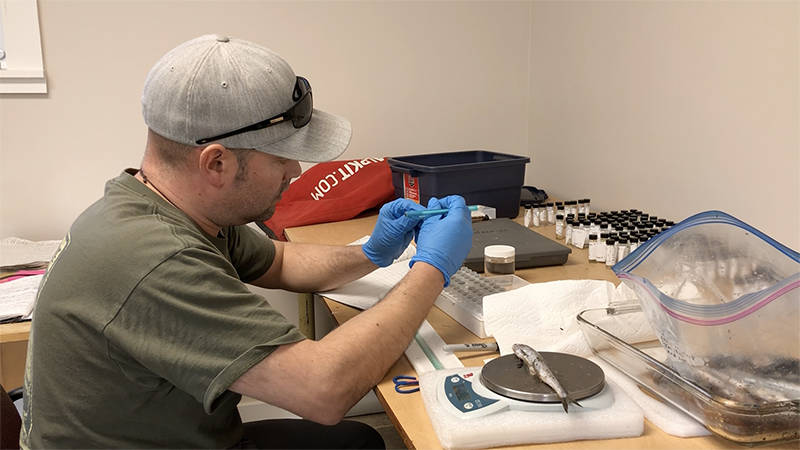Estimated Reading time

2 Mins
Nuxalk Nation Sees Biggest Eulachon Run in Two Decades

1998 was the last time members of the Nuxalk Nation witnessed a healthy eulachon run in Bella Coola. The following year, the eulachon population experienced a significant crash and it wasn’t until 2012 that its numbers began to increase. This year, Nuxalk are seeing the biggest eulachon run in Bella Coola in 20 years.
While the eulachon population suffered, the Nuxalk Nation missed out on the physical and cultural benefits of the fish.
It’s hard to overstate the importance of eulachon to First Nations on the Central Coast, says the Central Coast Indigenous Resource Alliance, “For millennia our people have worked together each spring to harvest this critical resource, whose grease has sustained us nutritionally and has been a valuable trade commodity and medicine.”
“It keeps you healthy and at the same time rids your body of what it doesn’t need.”
Journalist Caitlin Thompson highlights a number of the health benefits of eulachon in her article about the oolichan grease-making camps of Bella Coola. Sputc, as the eulachon are called in Nuxalk, are rich in essential omega-3 fatty acids, vitamin’s A, E, and K, as well as calcium, zinc, and iron.
“It keeps you healthy and at the same time rids your body of what it doesn’t need,” says Bert Mack of the Nuxalk Nation. “When I eat grease, I feel better. It’s that simple.”
First Nations on BC’s central coast have been doing eulachon research, and monitoring the abundance of stocks, since shortly after the 1999 collapse.

“It is the Nations coast-wide that are leading the research to find out what is happening to eulachon,” says Megan Moody, Stewardship Director of Nuxalk Nation, noting that the research is being conducted entirely by community members. “If it wasn’t for our research,” she says, “we wouldn’t know if eulachon still exist in our rivers.”
Jason Moody, Nuxalk Fisheries and Wildlife Coordinator, believes the cold weather experienced this year has helped support a healthier run. “Eulachon are smart,” he said. “Climate change has certainly affected them, but they have also learned to adapt. They have been spawning earlier than they used to historically, but this year they have the advantage of the colder temperatures and I’m sure that’s been a factor in the activity we’re seeing now.”
Read more about the 2018 Bella Coola eulachon run and the eulachon research project in Coast Mountain News and from Central Coast Indigenous Resource Alliance.
